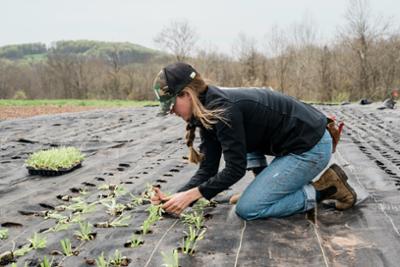

More than 250 initiatives have been analysed by the FiturNext Observatory for the Challenge 2025
The Observatory is keeping this year's call open, dedicated to how tourism can contribute to sustainable food management in destinations, the Horeca and transport sector and other actors in the food value chain.
FiturNext, the FITUR Observatory dedicated to promoting good tourism practices in terms of sustainability, is still open for initiatives for the 2025 Challenge dedicated to how tourism can contribute to sustainable food management.
So far, more than 250 initiatives have been analysed by the Observatory, both from Europe and from other continents, such as Asia and America. Of these, nine will remain as finalists and three will become the winners of this next edition, which will be held between 22 and 26 January at the Madrid International Tourism Trade Fair (FITUR).
Three key themes for sustainable food management in tourism
The reduction of food surpluses, the reuse of food from a circular approach and the sourcing of local, Km0 and seasonal products are some of the main focuses of tourism as a vehicle for gastronomic sustainability. Its main objectives are the responsible optimisation of existing agri-food resources and the reduction of food surplus. All of this is carried out with the active participation of visitors, residents and public and private promoters who seek to enhance the value of their local gastronomy as a source of sustainability for tourism. During the progress of the research, some thematic lines have been defined that encompass the values of the projects analysed:
- Destinations and other territories: Gastronomy is one of the key factors in the promotion and competitiveness of destinations, as reflected in the UN Tourism data that more than a third of a tourist's expenditure is spent on food. Therefore, the undertaking of actions or good practices in sustainable gastronomy and its promotion, through public policies that encourage them, are an essential element for the transformation and boosting of the sector.
In this sense, the Observatory identified initiatives that are based on agreements between the different actors in the food system in tourism, aligning objectives, practices and efforts towards improving food management in their destinations. This not only contributes to inspiring other actors in the sector and to the sustainable positioning of the territory but can also encourage the generation of new public policies that challenge the challenge of food waste.
- Horeca and transport sector: The role of the gastronomic service offer is crucial. The reduction, the use in favour of circularity, the provision of local food and its instructive effect on residents and visitors, position these agents as powerful vehicles for change in the tourism sector.
An example of good practices identified in this category are those based on Artificial Intelligence (AI) systems. These help to reduce the volume of surplus generated, optimise available resources and provide knowledge by generating databases that contribute to making decisions based on real information.
- Other actors in the food value chain: The possibility of getting to know sustainable products, their forms of production, ways of life and associated infrastructures contributes to raising awareness of local gastronomy, while at the same time improving participants' awareness of food sustainability. Otros agentes de la cadena de valor de la alimentación.
Within this framework, olive oil tourism, wine tourism, fish tourism and other types of experiential agri-tourism contribute to bringing traditional and sustainable production closer, which, on many occasions, is at risk of being passed on from one generation to the next.
A track record of more than 1,500 initiatives analysed by FiturNext
This is the sixth edition of the Observatory, which already has a great track record and recognition in the responsible and sustainable tourism industry. Over the last few years, FiturNext has analysed around 1,500 initiatives that address good sustainable practices in their destinations and contribute to promoting an industry that is more committed to the environment and the local community.



